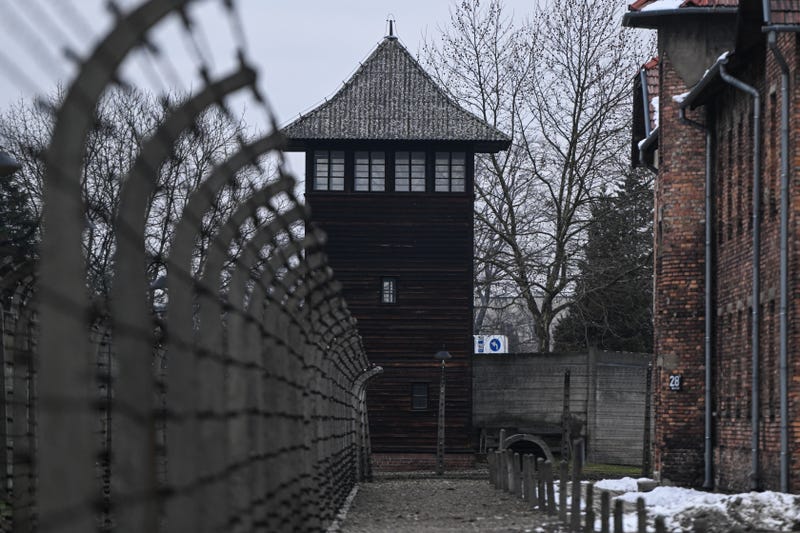
PHILADELPHIA (KYW Newsradio) — On Friday, the world observes International Holocaust Remembrance Day, marking the 78th anniversary of the liberation of the Auschwitz-Birkenau death camp in German Nazi-occupied Poland. And an Elkins Park museum wants to make sure younger generations know that history.
The United Nations designated Jan. 27 to commemorate the genocide of 6 million Jews and millions of others in Europe during World War II. At Auschwitz-Birkenau alone, more than 1.1 million lives were taken in state-sanctioned murder.
“If you were taken to an extermination camp specifically like Auschwitz, and you were below a certain age, you were automatically exterminated,” said Chuck Feldman, president of the Holocaust Awareness Museum and Education Center in Elkins Park.
Germany and Nazi-conquered territories had many concentration camps and work camps, Feldman explained, "but there were six specific extermination camps, five of which were in Poland, where Jews and others were systematically murdered,” said Feldman.
His organization helps Holocaust survivors tell their first-person eyewitness accounts to younger generations through various events and museum tours.
“We have younger people who just don't know the history,” Feldman said.
But he said this aging population won’t be able to tell their stories for long. Anyone capable of laboring in a concentration camp had to have been at least teenager.
“If you do the math, these are people who — even if they got there in 1945 — at this point are in their mid-90s or older,” said Feldman.
Fred Behrend, 96, saw the rise in antisemitism prior to World War II that led to the Holocaust.
“What I did see, of course, was the ill treatment of the Jews during Kristallnacht,” said Behrend. Kristallnacht was the Nazi-ordered wave of massacres of the Jewish population in Germany and its occupied lands on Nov. 9 and 10, 1938.
“Jews were dragged out of their stores and out of their homes and marched through the streets. They were beaten with clubs. They fell on the street.”
After witnessing Kristallnacht, he was able to escape to Cuba and then immigrate to America before World War II. After the war, he says, there was no place to which Jews could escape.
“Don't forget that people living in countries did not object or did anything about the murder of 6 million innocent people,” he said.
“The only reason they gave for this extermination was that they were Jews.”
Feldman says these stories are invaluable, especially as survivors age or pass away.
“Once they're all gone, it's important that we continue telling the story,” said Feldman.
“Don't forget the Holocaust.”



